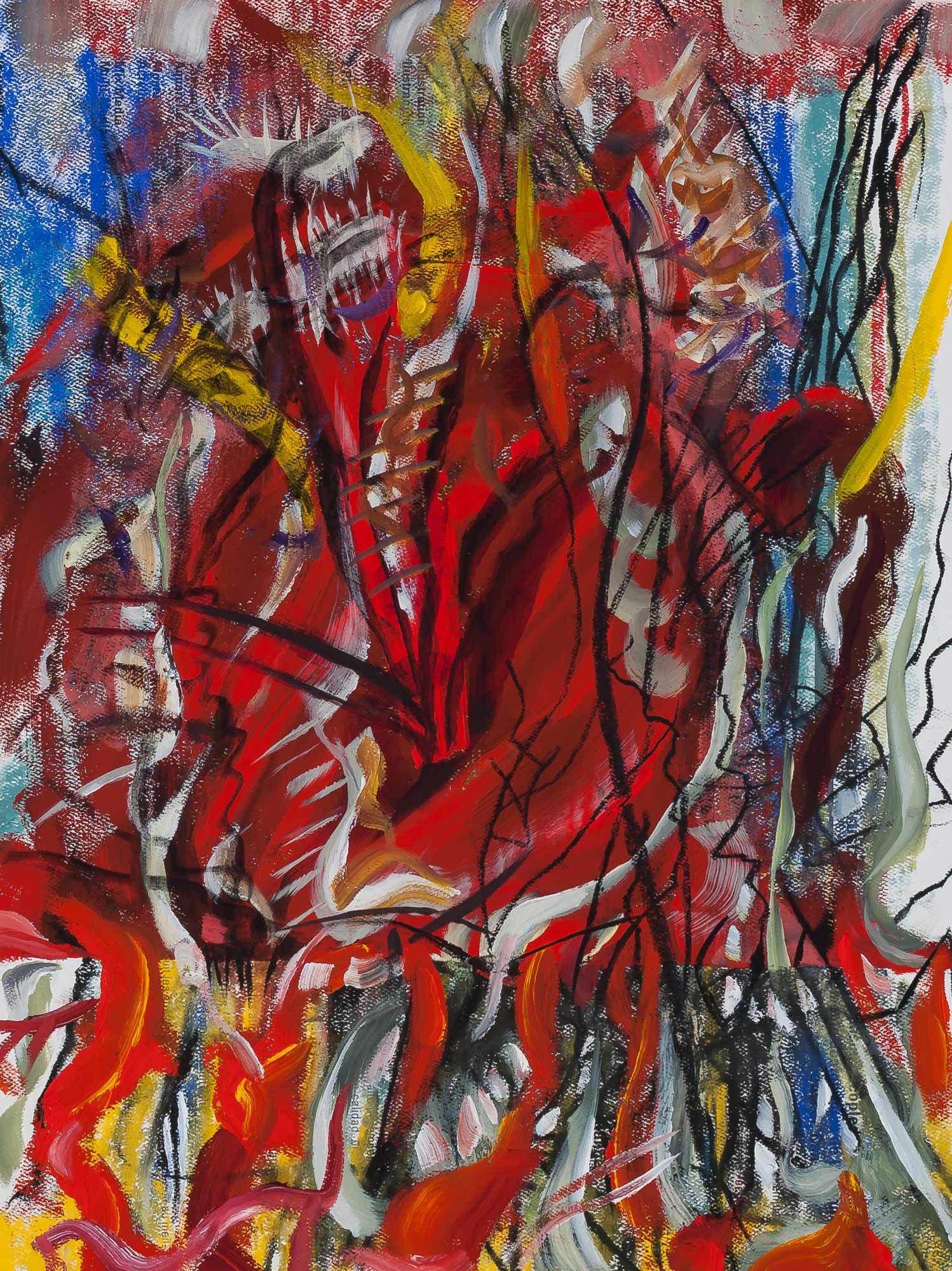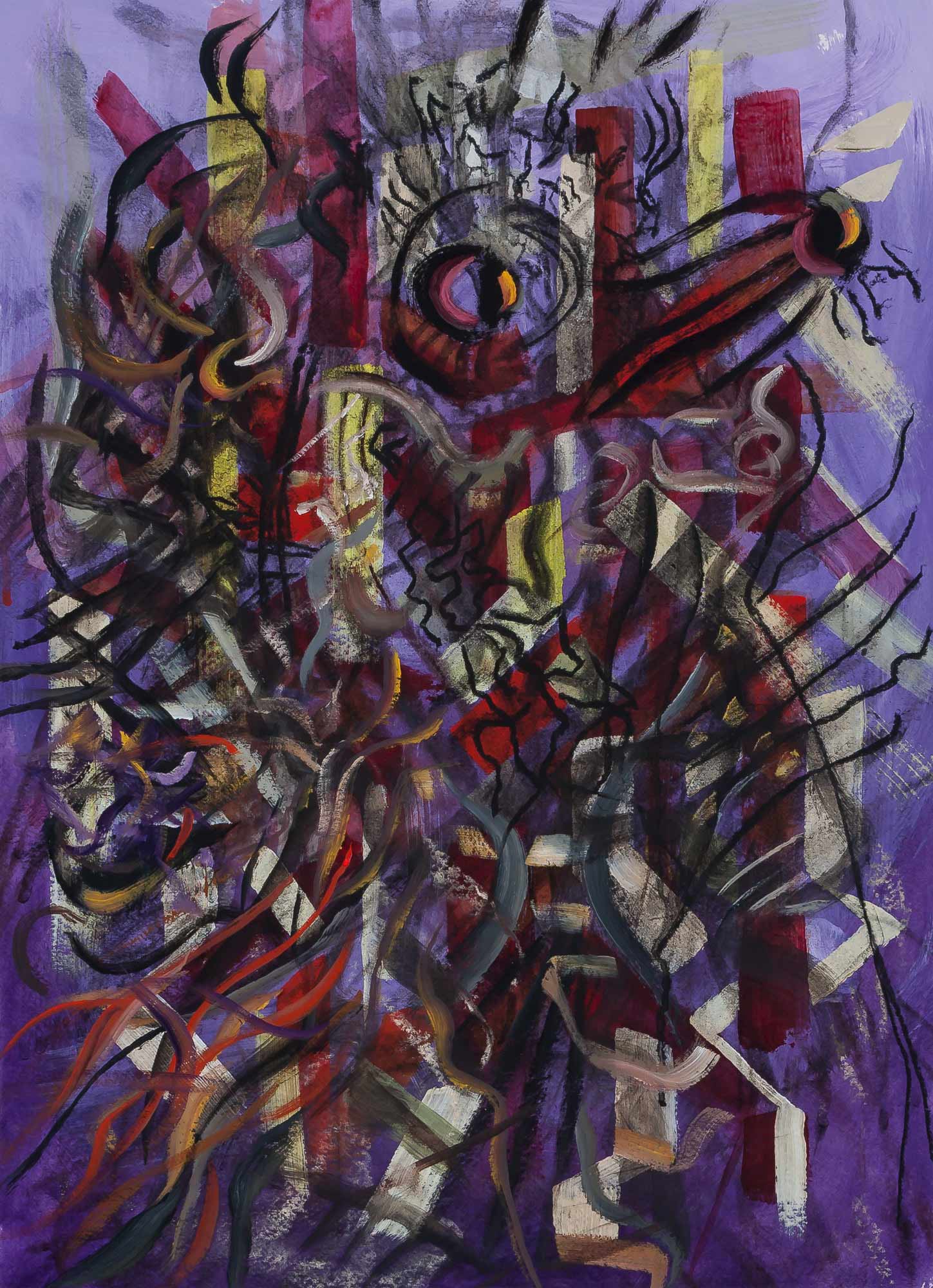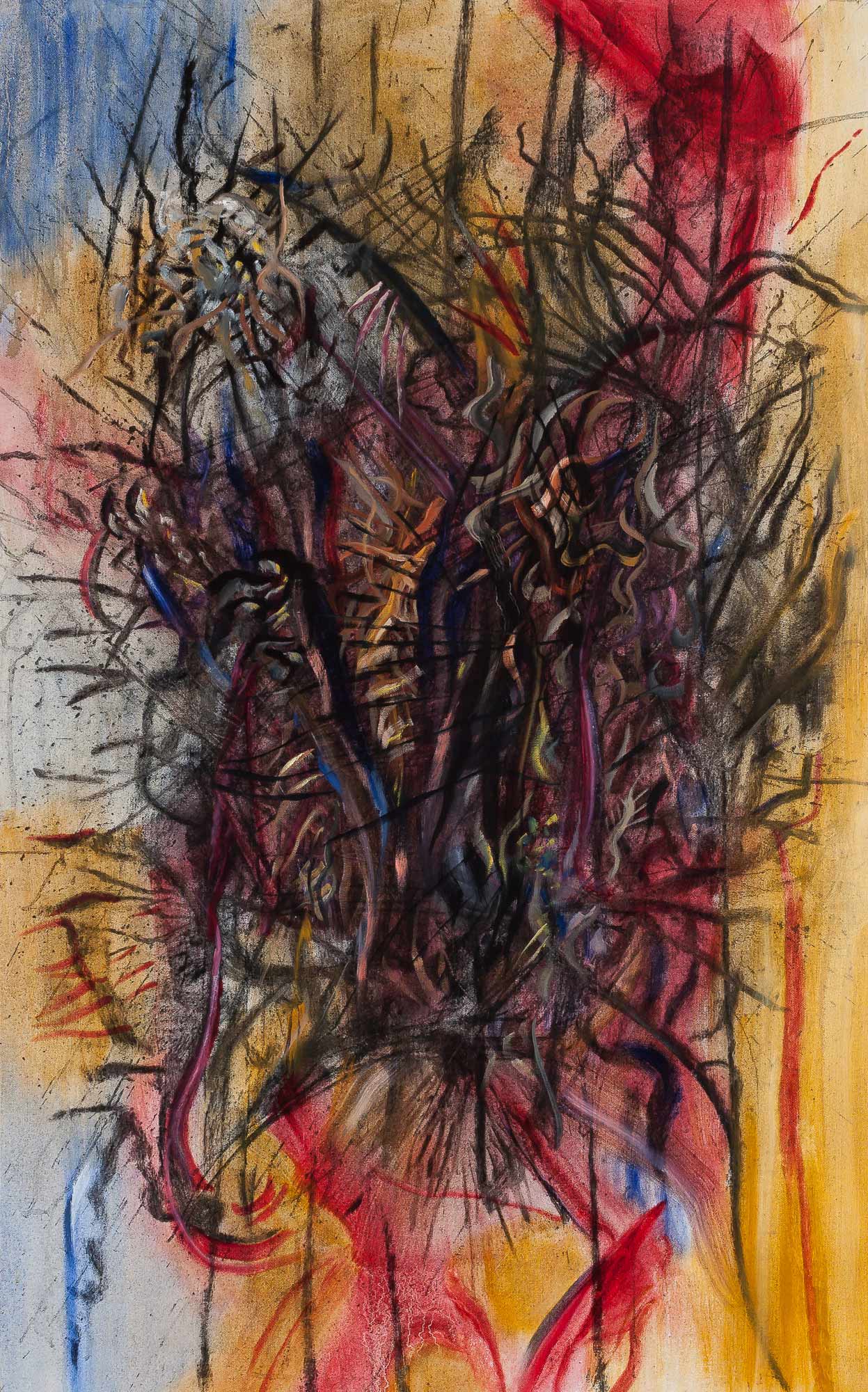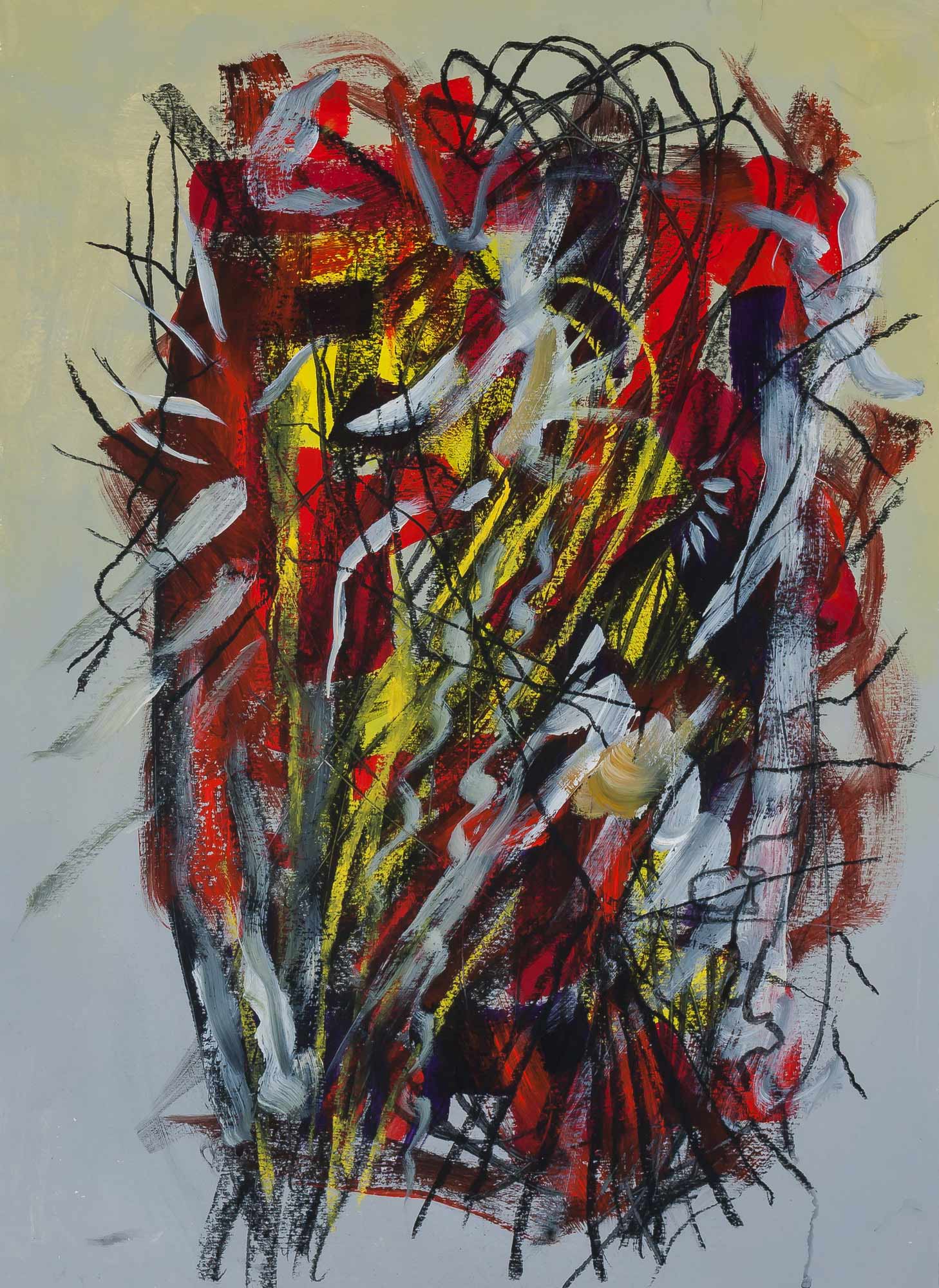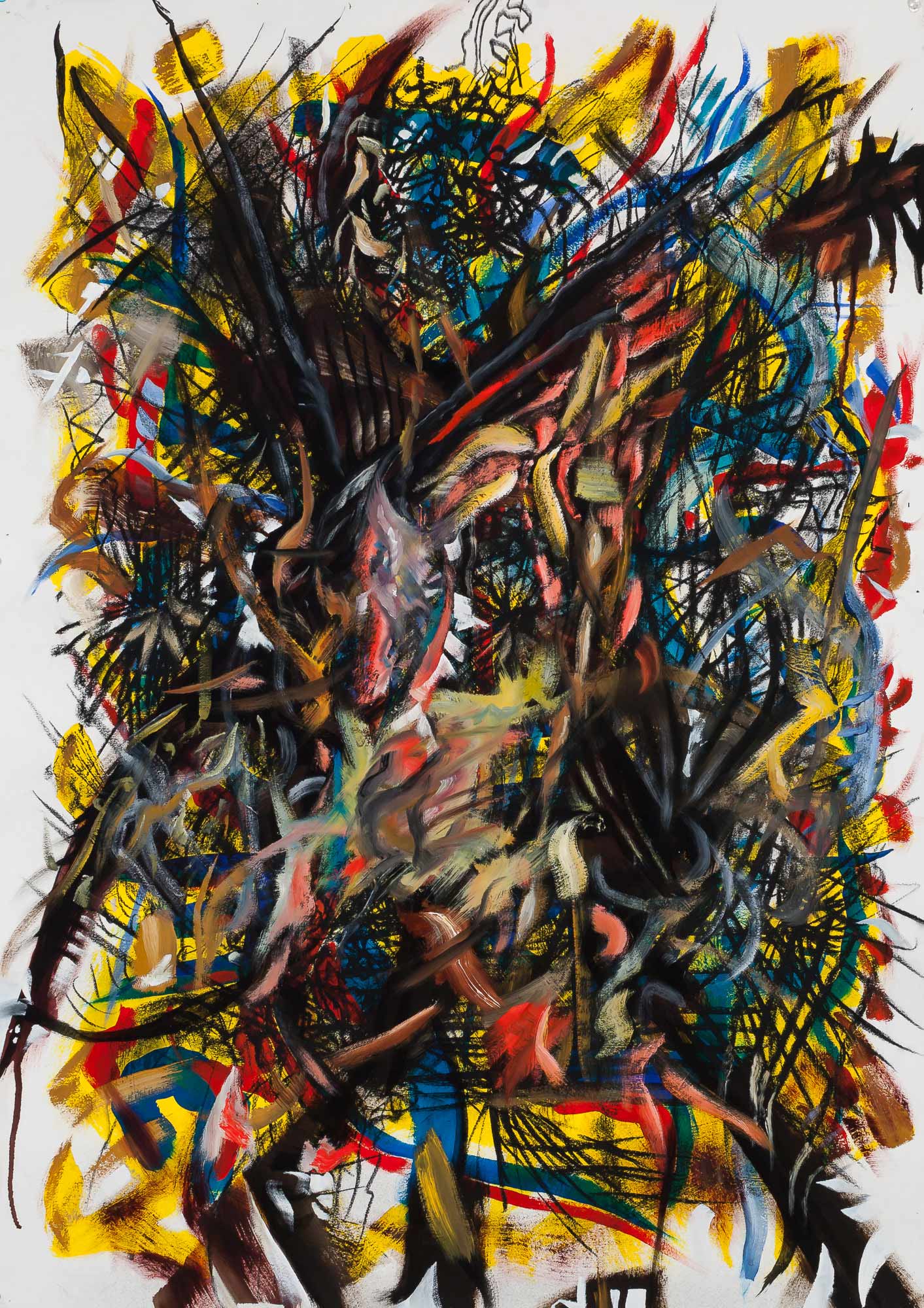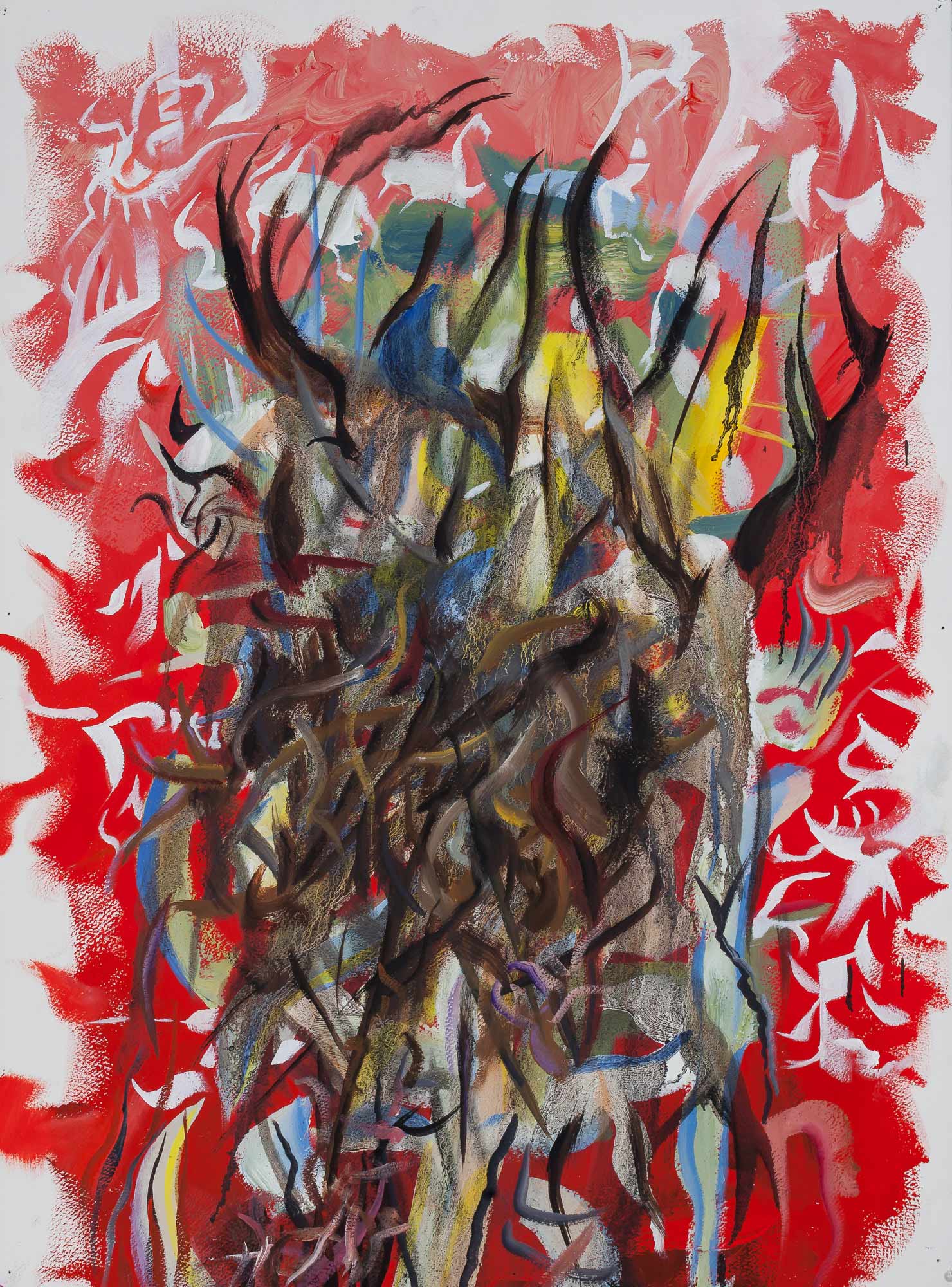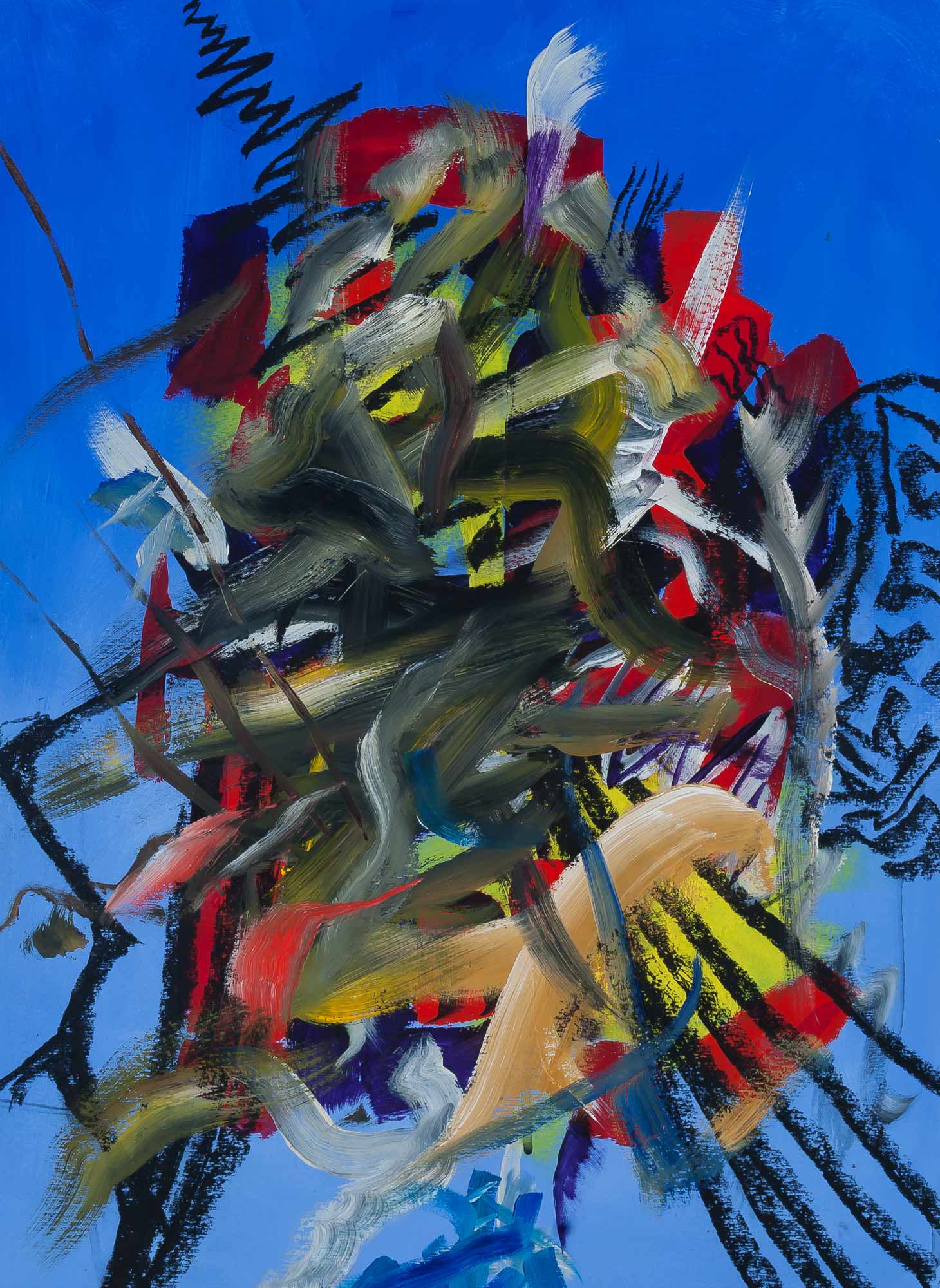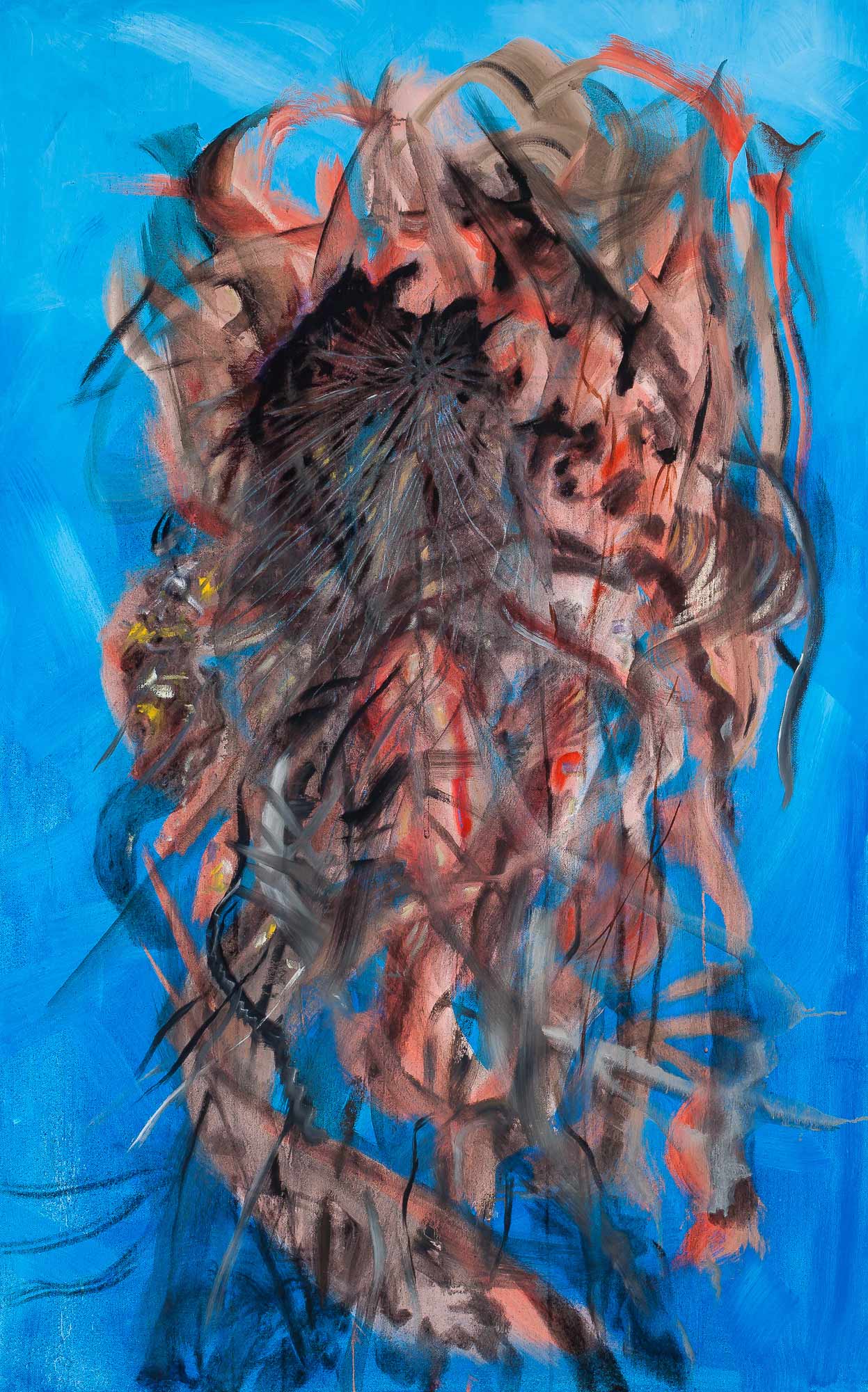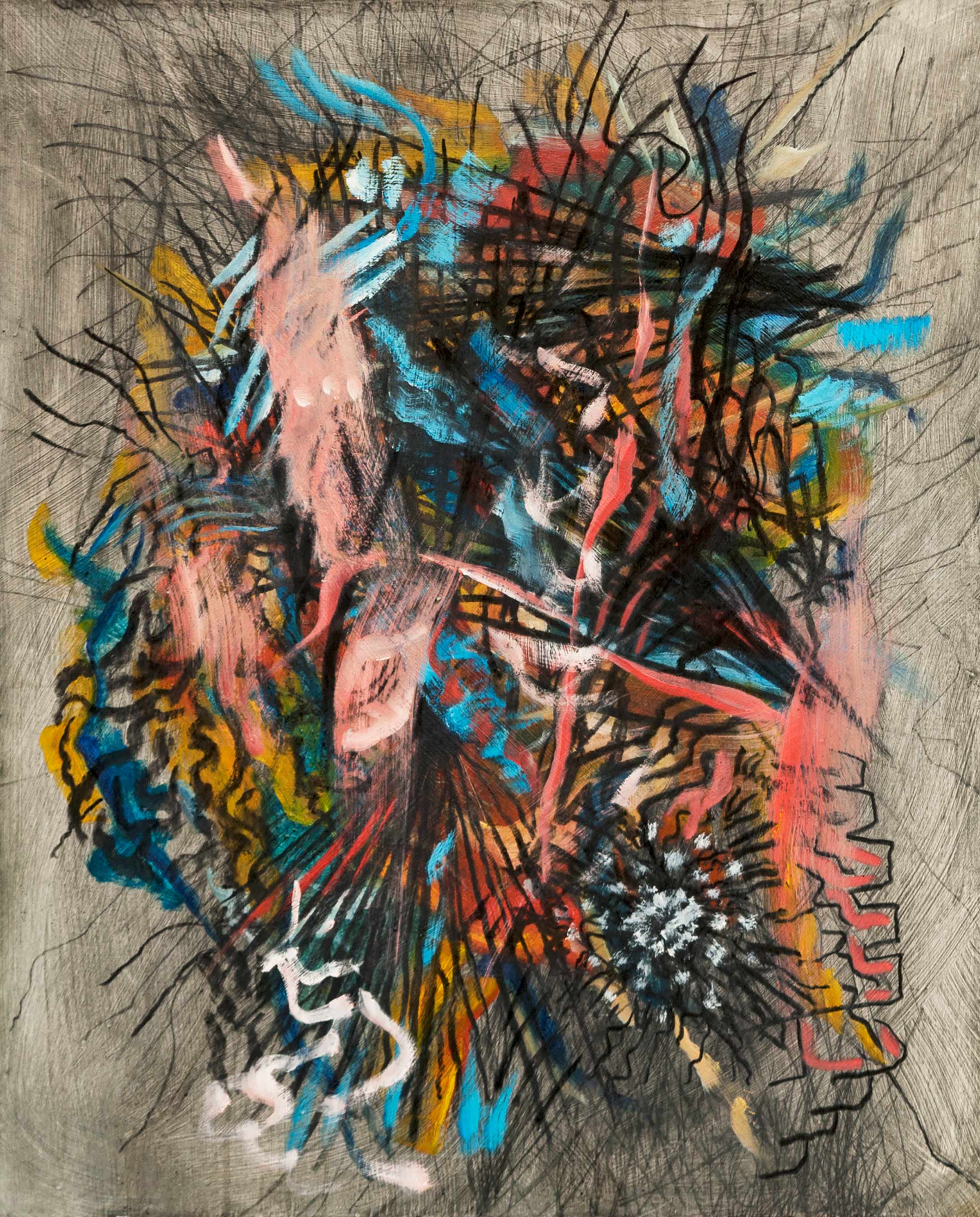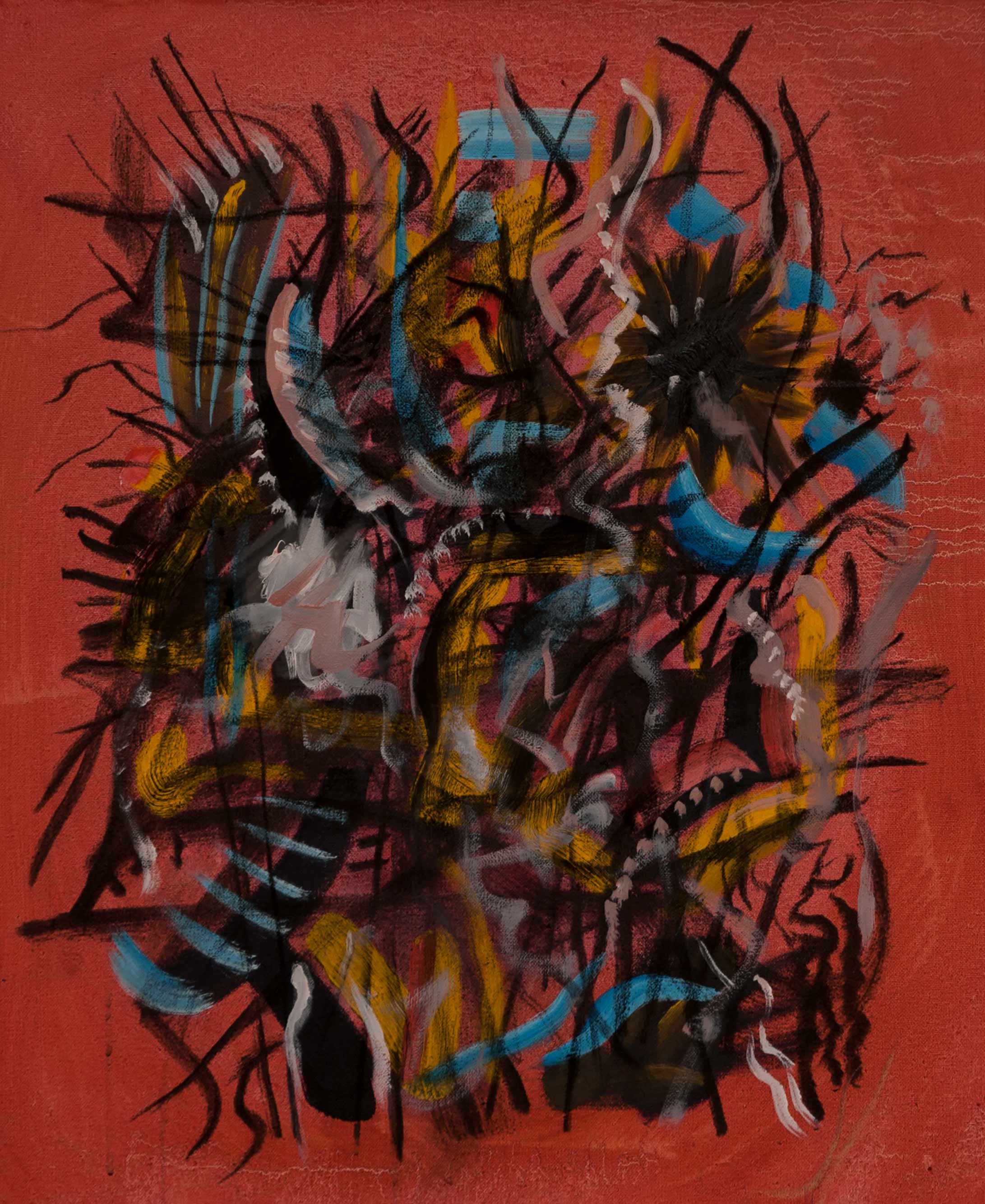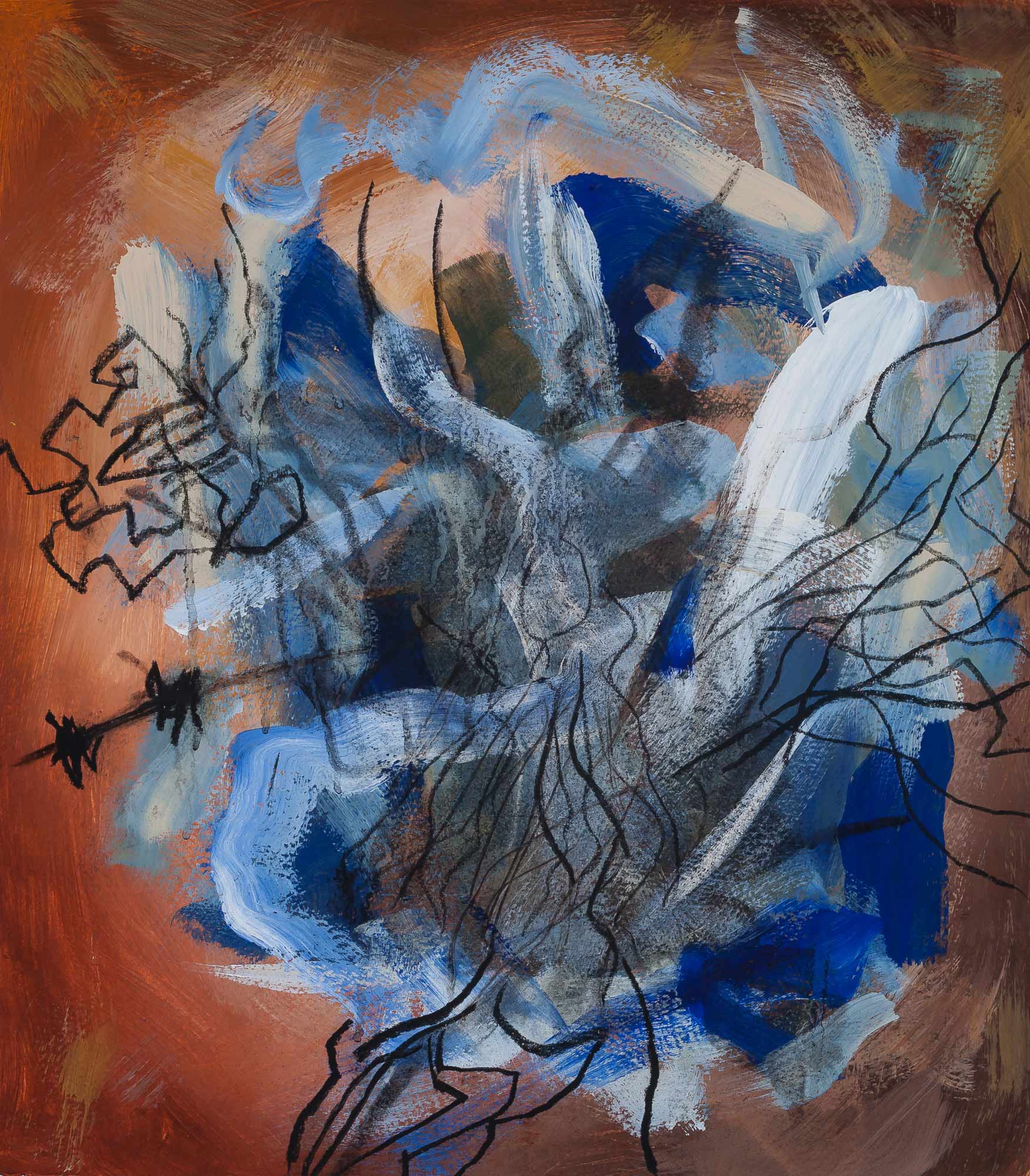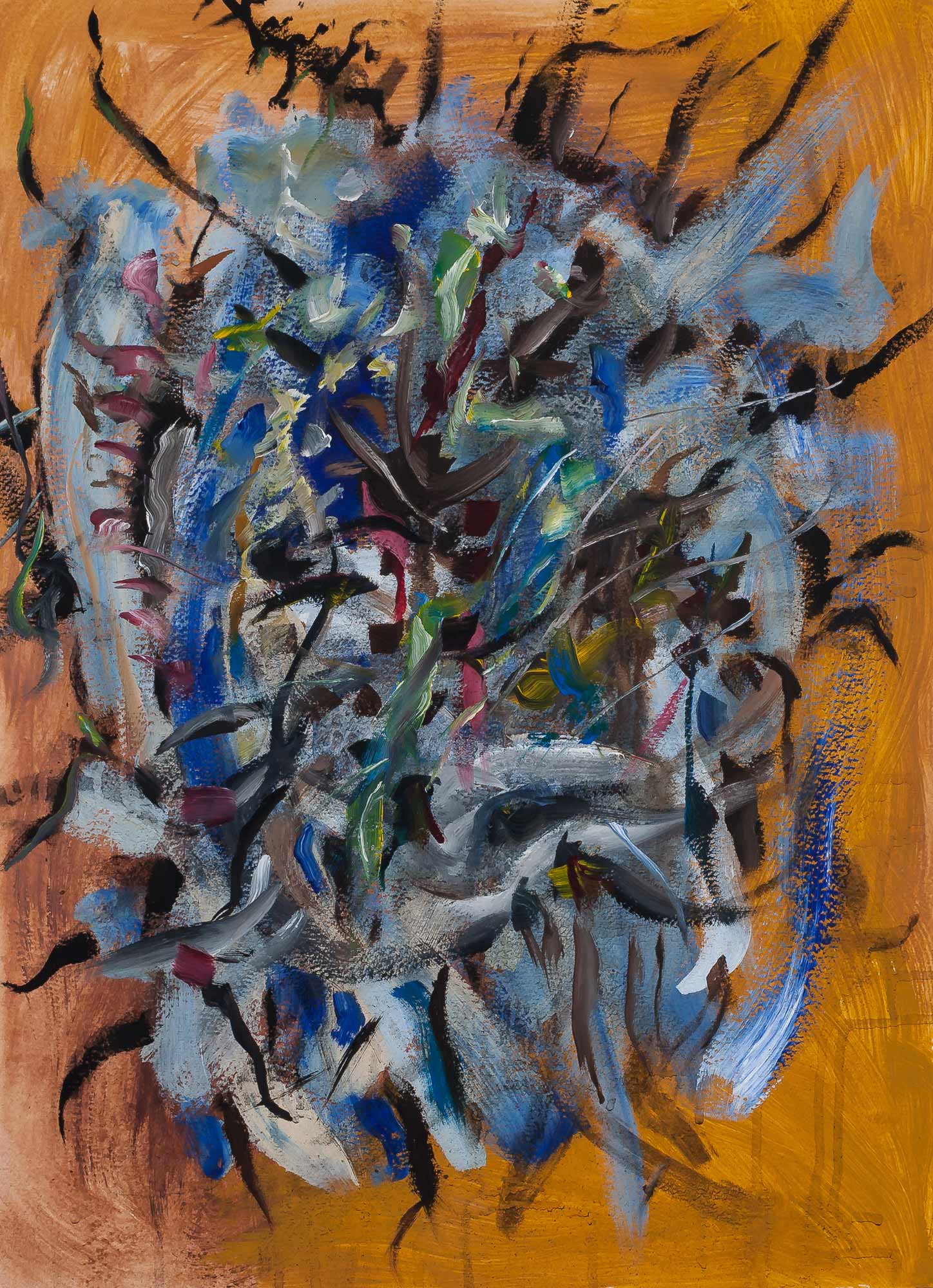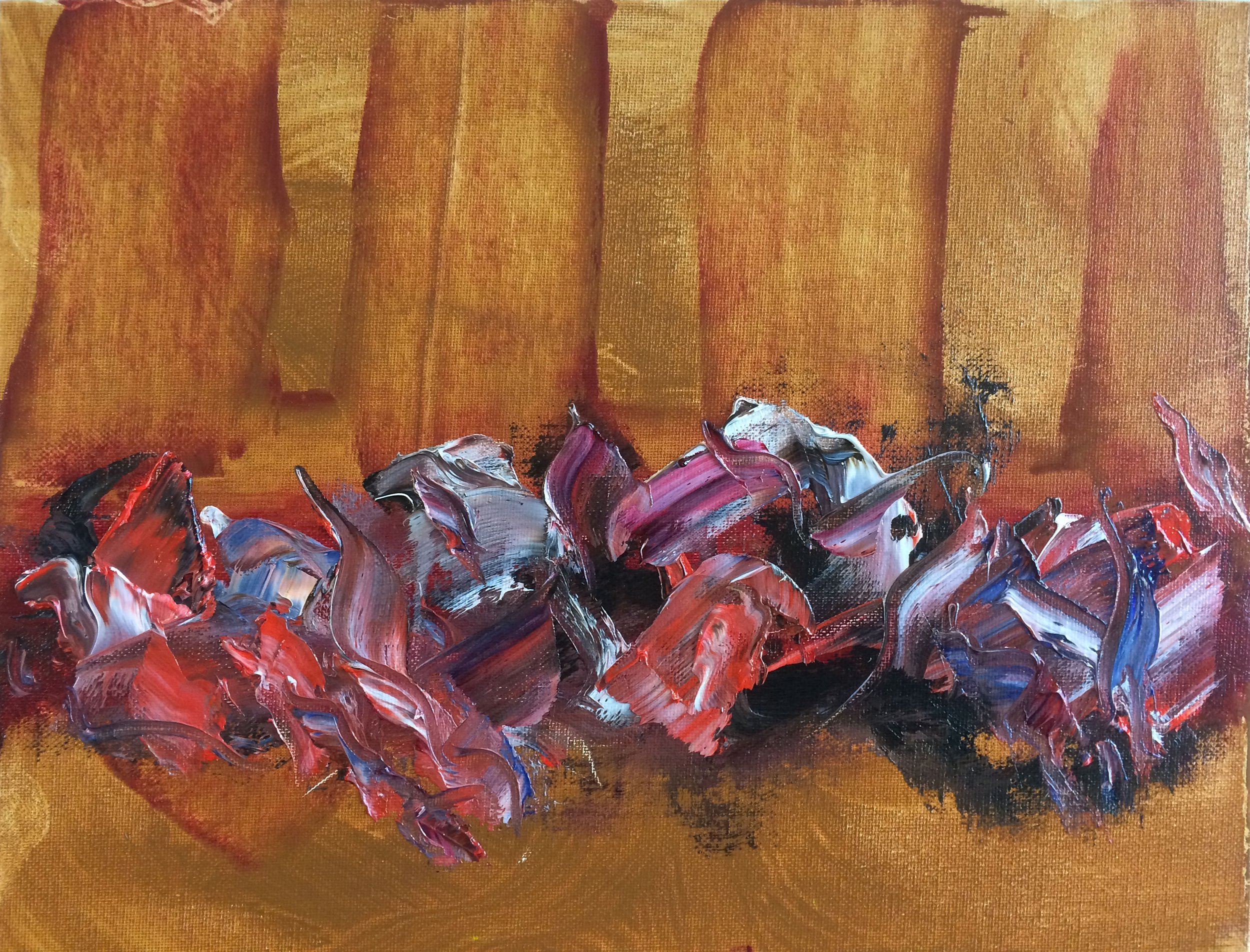Hinterlands
The motivation and context for this series of images derive from three literary sources, Thomas Hardy’s poem The Darkling Thrush, the poem Byzantium by William Butler Yeats and William Gibson’s science fiction short story Hinterlands
From Thomas Hardy’s poem
“The Darkling Thrush” -
“. . . Winter's dregs made desolate
The weakening eye of day.
The tangled bine-stems scored the sky
Like strings of broken lyres . . .”
From the poem “Byzantium”
by William Butler Yeats -
". . . Before me floats an image, man or shade,
Shade more than man, more image than a shade . . ."
From William Gibson’s “Hinterlands” -
A short story in which the dread induced by human contact with an unilluminated, indescribable, almost entirely unknown, but certainly extraterrestrial world system gives rise to a new human religion, something like a cargo cult.
These have haunted me for years and in this series, I have tried to realize and give form to the feelings that they invoke. I have used Arabic names for stars as titles. These pieces were completed between May and September of 2017.
Byzantium
The unpurged images of day recede;
The Emperor's drunken soldiery are abed;
Night resonance recedes, night-walkers' song
After great cathedral gong;
A starlit or a moonlit dome disdains
All that man is,
All mere complexities,
The fury and the mire of human veins.
Before me floats an image, man or shade,
Shade more than man, more image than a shade;
For Hades' bobbin bound in mummy-cloth
May unwind the winding path;
A mouth that has no moisture and no breath
Breathless mouths may summon;
I hail the superhuman;
I call it death-in-life and life-in-death.
Miracle, bird or golden handiwork,
More miracle than bird or handiwork,
Planted on the starlit golden bough,
Can like the cocks of Hades crow,
Or, by the moon embittered, scorn aloud
In glory of changeless metal
Common bird or petal
And all complexities of mire or blood.
At midnight on the Emperor's pavement flit
Flames that no faggot feeds, nor steel has lit,
Nor storm disturbs, flames begotten of flame,
Where blood-begotten spirits come
And all complexities of fury leave,
Dying into a dance,
An agony of trance,
An agony of flame that cannot singe a sleeve.
Astraddle on the dolphin's mire and blood,
Spirit after spirit! The smithies break the flood,
The golden smithies of the Emperor!
Marbles of the dancing floor
Break bitter furies of complexity,
Those images that yet
Fresh images beget,
That dolphin-torn, that gong-tormented sea.
The Darkling Thrush
By Thomas Hardy
I leant upon a coppice gate
When Frost was spectre-grey,
And Winter's dregs made desolate
The weakening eye of day.
The tangled bine-stems scored the sky
Like strings of broken lyres,
And all mankind that haunted nigh
Had sought their household fires.
The land's sharp features seemed to be
The Century's corpse outleant,
His crypt the cloudy canopy,
The wind his death-lament.
The ancient pulse of germ and birth
Was shrunken hard and dry,
And every spirit upon earth
Seemed fervourless as I.
At once a voice arose among
The bleak twigs overhead
In a full-hearted evensong
Of joy illimited;
An aged thrush, frail, gaunt, and small,
In blast-beruffled plume,
Had chosen thus to fling his soul
Upon the growing gloom.
So little cause for carolings
Of such ecstatic sound
Was written on terrestrial things
Afar or nigh around,
That I could think there trembled through
His happy good-night air
Some blessed Hope, whereof he knew
And I was unaware.
Excerpts from Hinterlands
by William Gibson
"Heaven was built after a dead Frenchman returned with a twelve-centimeter ring of magnetically coded steel locked in his cold hand, black parody of the lucky kid who wins the free ride on the merry-go-round. We may never find out where or how he got it, but that ring was the Rosetta stone for cancer. So now it's cargo cult time for the human race."
"We're like intelligent houseflies wandering through an international airport; some of us actually manage to blunder onto flights to London or Rio, maybe even survive the trip and make it back. "Hey," say the other flies, "what's happening on the other side of that door? What do they know that we don't?" At the edge of the Highway every human language unravels in your hands except, perhaps, the language of the shaman, of the cabalist, the language of the mystic intent on mapping hierarchies of demons, angels, saints."
"I'd felt it before, the Fear, but only the fringes, the least edge. Now it was vast, the very hollow of night, an emptiness cold and implacable. It was last words, deep space, every long goodbye in the history of our species. It made me cringe, whining. I was shaking, groveling, crying. They lecture us on it, warn us, try to explain it away as a kind of temporary agoraphobia endemic to our work. But we know what it is; surrogates know and handlers can't. No explanation has ever even come close."
"It's the Fear. It's the long finger of Big Night, the darkness that feeds the muttering damned to the gentle white maw of Wards. Olga knew it first, Saint Olga. She tried to hide us from it, clawing at her radio gear, bloodying her hands to destroy her ship's broadcast capacity, praying Earth would lose her, let her die..."

